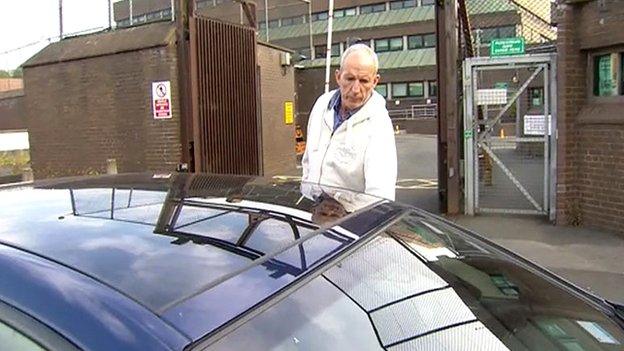Analysis: The IRA row that brought Stormont to the brink
- Published
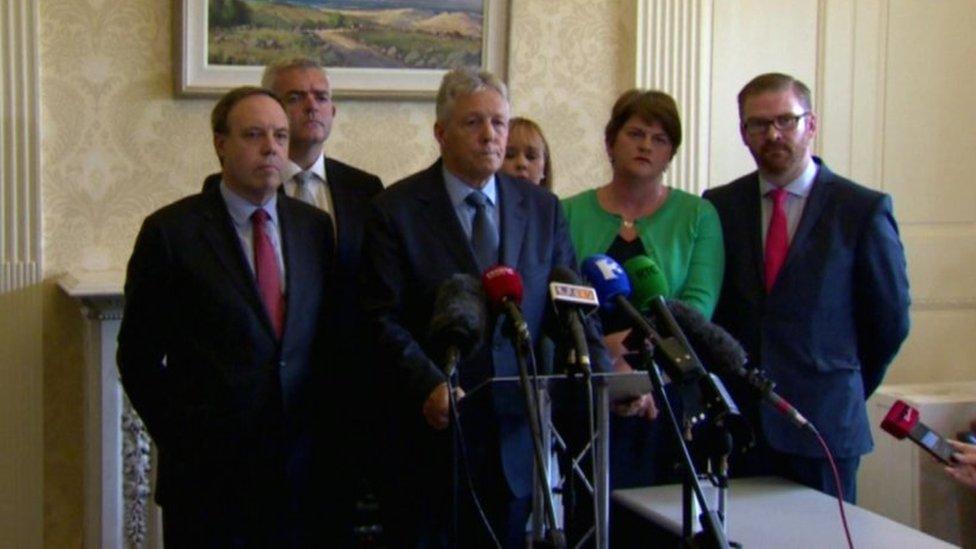
DUP leader Peter Robinson has stepped aside as first minister and all but one of the DUP's ministers have resigned
For quite some time it had been clear that this autumn would be a critical season for the survival of Northern Ireland's devolved government.
But politicians and pundits expected the crunch issue to be a row over the welfare system, which was causing an unsustainable budget black hole.
Few, if any, could have seen the status of the Provisional IRA returning to the centre of political attention.
The paramilitary group, which killed hundreds of people during the Troubles in Northern Ireland, announced an end to its armed campaign in 2005, external.
Following years of stop-start political progress, devolution appeared to put down roots when a new power-sharing administration was formed at Stormont in 2007.
The partnership of the Protestant preacher Ian Paisley and the former IRA commander Martin McGuinness seemed to have brought together political polar opposites.
But the relationship between the Democratic Unionist Party (DUP) and Irish republicans was always going to be fraught.

Who's who
Northern Ireland Executive: The ministerial team that runs Northern Ireland's devolved government at Stormont.
It is made up of British unionist, Irish nationalist and cross-community elected representatives, set up after an historic power-sharing agreement more than 20 years ago.
The largest party in the executive is the Democratic Unionist Party (DUP), followed by Sinn Féin, the Ulster Unionist Party (UUP), the Social Democratic and Labour Party (SDLP) and the Alliance Party.
DUP and UUP: Unionist parties that want to maintain Northern Ireland's union with Britain
Sinn Féin and SDLP: Nationalist parties aspiring to a united Ireland.
Alliance Party: Neutral on the issue of the union.
The Irish Republican Army (IRA): The IRA has existed in various forms in Ireland since the early part of the 20th Century but the latest political row concerns the Provisional IRA.
The Provisional IRA was the name used by a paramilitary organisation that killed more than 1,700 people during decades of violence in Northern Ireland, known as the Troubles, which began in 1969.
The IRA declared ceasefires as part of the Northern Ireland peace process and in July 2005 it announced a formal end to its armed campaign.
During the Troubles, Sinn Féin acted as the political wing of the IRA.

Budgetary chaos
The most serious disagreement broke out over proposed changes to the benefits system.
Sinn Féin blocked the welfare reform legislation which has been introduced in the rest of the UK.
They said they wanted to protect the most vulnerable.
The DUP, now led by Peter Robinson, claimed Sinn Féin were causing budgetary chaos.
Talks leading to last December's Stormont House Agreement appeared to have sorted out the dispute - but the deal fell apart in the spring.
Since then, there has been an unexpected new dimension to the political disagreement.
A former senior IRA member, Gerard "Jock" Davison, was murdered in Belfast in May.
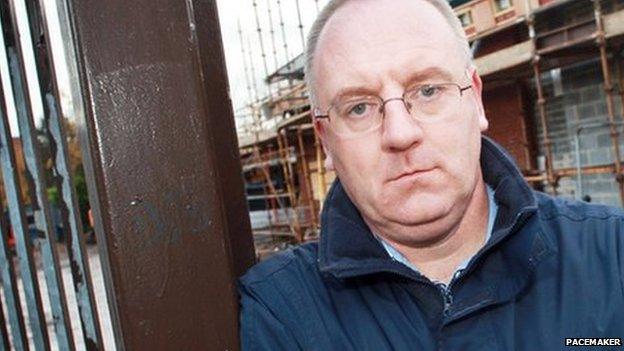
Gerard 'Jock' Davison was shot dead in the Markets area of Belfast
In August, another republican - Kevin McGuigan - was shot dead in an apparent revenge attack.
The police said they believed IRA members were involved in the killing of Mr McGuigan, although there was no evidence at this stage it was sanctioned by the organisation.
Unionists demanded to know why the IRA still existed a decade after it said its campaign was over.
Northern Ireland's Chief Constable George Hamilton said Provisional IRA structures remained "broadly in place" but added the organisation remained committed to politics and was not engaged in terrorism.
Unravelling
The Stormont institutions began to unravel.
The smaller of the two unionist parties in the Northern Ireland Executive - the Ulster Unionists - withdrew their only minister.
The DUP then said it would not be "business as usual" and called off the regular meetings of the power-sharing executive.
The government called inter-party talks - but on the second day of the negotiations, Sinn Féin's chairman in Northern Ireland was one of three senior republicans arrested by police investigating the murder of Kevin McGuigan.

Bobby Storey (left), Eddie Copeland (centre) and Brian Gillen (right) are leading republicans
Bobby Storey and the other two men have now been released without charge - but in the meantime Mr Robinson has stood aside as first minister.
All but one of his party's ministers are resigning.
The DUP's finance minister Arlene Foster remains in post.
Mr Robinson has not officially resigned - that allows Mrs Foster to become acting first minister.
The consequence of this is that immediate elections are avoided and the Northern Ireland Assembly and executive remain afloat - but only just.
Dysfunctional
There are ministerial vacancies in Stormont's departments of health, social development, enterprise and regional development.
The executive technically remains operational, but dysfunctional.
An executive without unionists, even if it is theoretically possible, would not have legitimacy.
The DUP have seven days in which they can re-nominate ministers.
Mrs Foster has suggested that the party is not ruling that out.
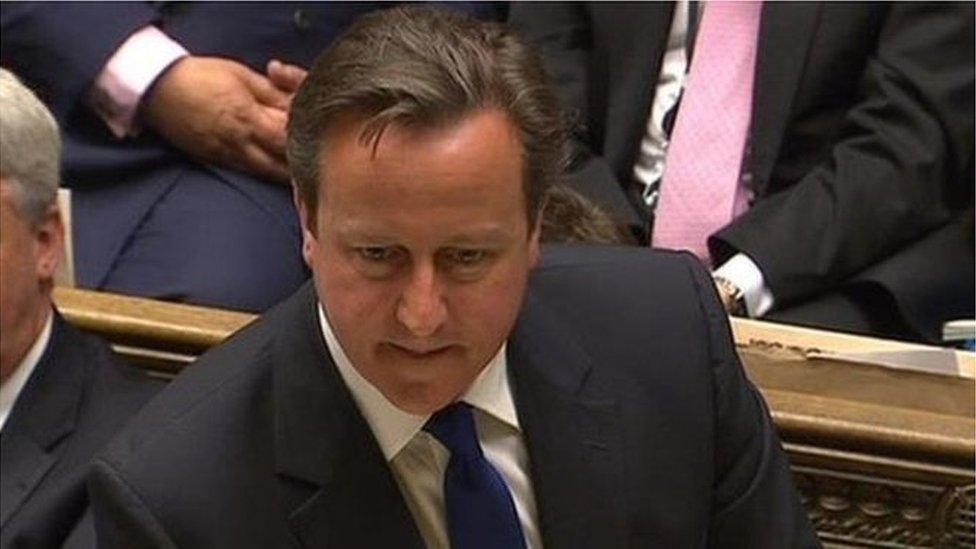
David Cameron told Mr Robinson he would not agree to the DUP's request to pass emergency legislation at Westminster to suspend the power-sharing institutions
Mr Robinson had a telephone conversation with Prime Minister David Cameron before he announced the DUP resignations.
Contacts
But the prime minister told him he would not agree to the DUP's request to pass emergency legislation at Westminster to suspend the power-sharing institutions.
The DUP say their contacts with the government will continue over the weekend.
The American, British and Irish governments are all urging the Northern Ireland parties to rescue devolution in the inter-party talks, which are set to begin again on Monday.
The last time Stormont was put into deep-freeze was in 2002 and it took five years for devolution to return.
The way out of the latest political quagmire is very unclear.
But if the governments and the parties do not find one - Northern Ireland's voters may be casting their ballots in an early election or London ministers may step in to take over.
- Published11 September 2015
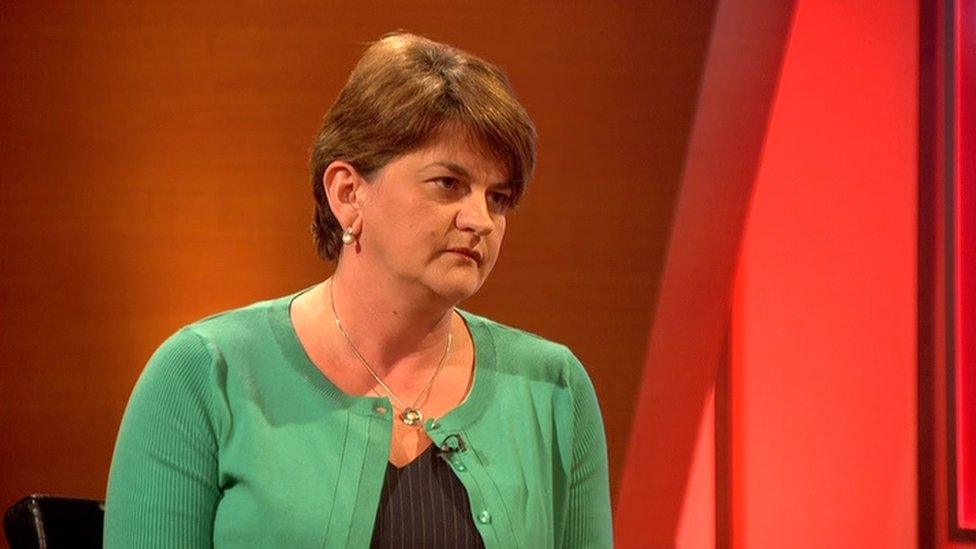
- Published10 September 2015
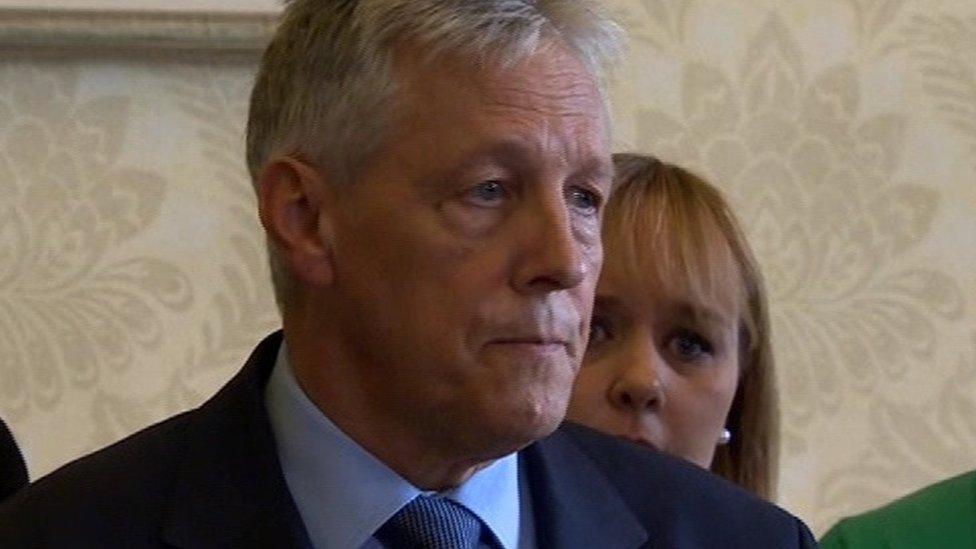
- Published13 November 2015
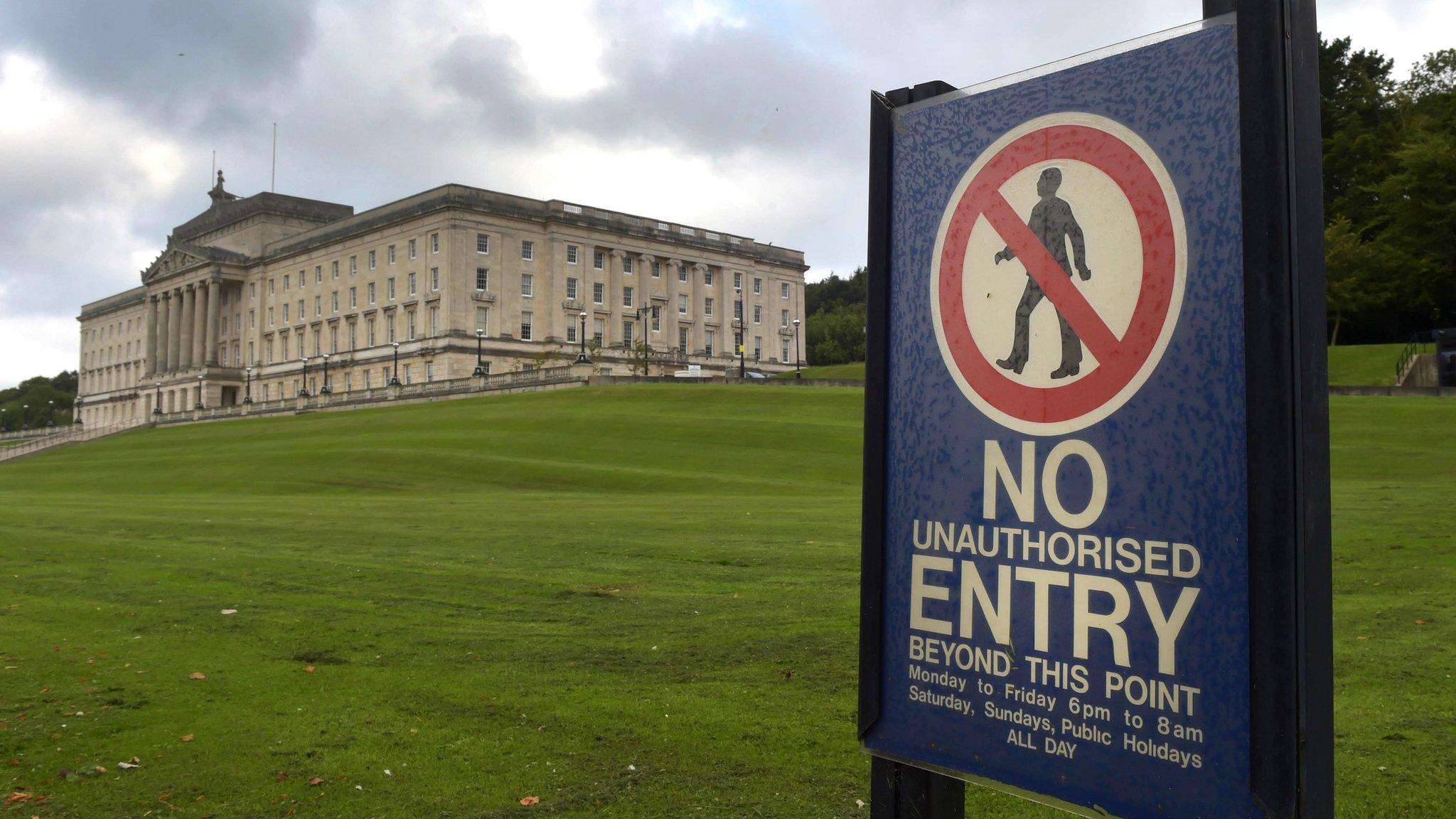
- Published11 September 2015
